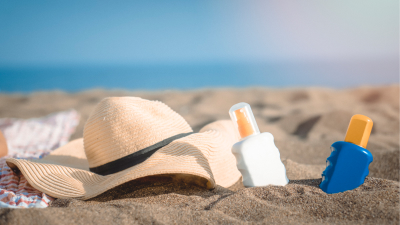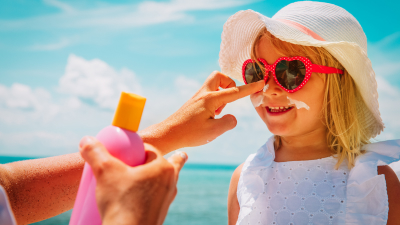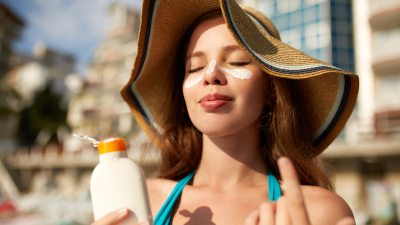 The sun is the source of heat and light of life. Its existence constitutes an inexhaustible source warming up and gives life energy to all living creatures. Making the plants, vegetables and fruits ripened and enlightening the life, the sun also has harmful effects. The damage caused by sunlights striking perpendicular to the skin can have serious consequences. One of the major ways of protection from sun rays, which cause skin spots, freckles and advanced stage of skin cancer, is avoiding from sun exposure except for certain times and unless it is necessary. The second way is to use sunscreens with protection against sun regularly throughout the year.
The sun is the source of heat and light of life. Its existence constitutes an inexhaustible source warming up and gives life energy to all living creatures. Making the plants, vegetables and fruits ripened and enlightening the life, the sun also has harmful effects. The damage caused by sunlights striking perpendicular to the skin can have serious consequences. One of the major ways of protection from sun rays, which cause skin spots, freckles and advanced stage of skin cancer, is avoiding from sun exposure except for certain times and unless it is necessary. The second way is to use sunscreens with protection against sun regularly throughout the year.
 UV-B rays cause skin burns, while UV-A rays cause mostly skin cancer. We must use sunscreens with high protection factor in order to prevent permanent damage to the skin exposed to the perpendicular Ultraviolet A and Ultraviolet B rays. Let's take a look at the things to consider when buying and applying sunscreens to the skin. Click here for 5 Reasons to Keep Sunscreen Always at Hand!
UV-B rays cause skin burns, while UV-A rays cause mostly skin cancer. We must use sunscreens with high protection factor in order to prevent permanent damage to the skin exposed to the perpendicular Ultraviolet A and Ultraviolet B rays. Let's take a look at the things to consider when buying and applying sunscreens to the skin. Click here for 5 Reasons to Keep Sunscreen Always at Hand!
 *Your sunscreen must protect against UV-A and UV-B rays. The higher the protection factor stated on the packaging of the product, the higher the protective effect of the sunscreen is.
*Your sunscreen must protect against UV-A and UV-B rays. The higher the protection factor stated on the packaging of the product, the higher the protective effect of the sunscreen is.
*For sunscreens to be effective, it must be applied to the skin 30 minutes before exposure to sun and it must be repeated every 2-3 hours. In case of contact with water such as pool, sea and shower, sunscreen should be reapplied to the skin after getting out of the water. The sunscreen must be applied to the skin so as to form a layer, and must not be absorbed into the skin.
 *Sunscreens must be used not only in summer, but also in winter. Since 80% of UVA and UVB rays can pass through clouds, sunscreens must be applied to all areas of the skin except the areas not exposed to sun under clothes against the risk of premature aging and skin spots.
*Sunscreens must be used not only in summer, but also in winter. Since 80% of UVA and UVB rays can pass through clouds, sunscreens must be applied to all areas of the skin except the areas not exposed to sun under clothes against the risk of premature aging and skin spots.
Although the sun protection factor, called SPF, helps protect the skin from the sun, it should be kept in mind that it does not provide 100% protection, and it must be kept away from sunlight as much as possible when sunlights strike perpendicular.
 *As with all products, attention must be paid to the expiry dates of sunscreens and use of expired products must be avoided.
*As with all products, attention must be paid to the expiry dates of sunscreens and use of expired products must be avoided.
*Lip skin is also one of the sensitive areas affected by the sun. Do not forget your lips when applying sunscreen to your skin, and use a lip balm containing SPF.
*It is not true that sunscreens prevent absorption of vitamin D by the body. Even if you wear sunscreen, your skin will benefit from the sun for vitamin D synthesis.
Recommended For You
Rumba and Flamenco: Music Genr...
The warm breeze of the Mediter...
Read MoreHow to Cope with Jet Lag...
Long-distance flights often ca...
Read MoreDecoration Tips for Small Home...
Small homes are living spaces ...
Read More